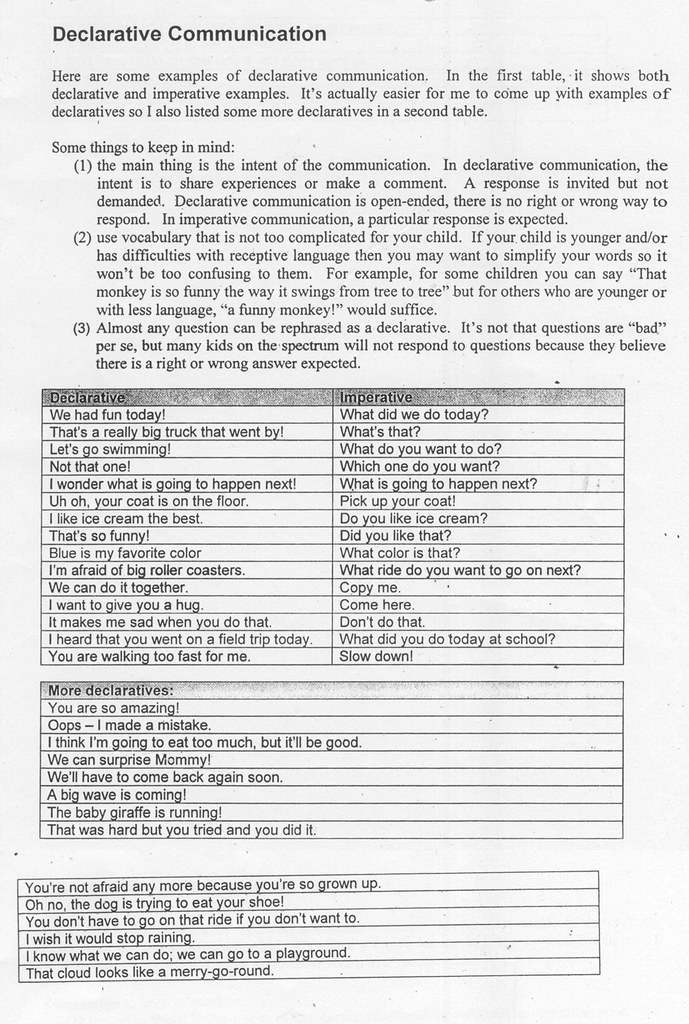“Life is so difficult. I’m exhausted all the time. My son is not settled. And he’s already 28! He changes jobs every six months! He doesn’t control himself- I can’t get through to him. We fight constantly. I’m just fed up,” said a distressed mother.
“I can imagine how tough it is for you,” I said. “I feel your pain.”
“There is only one solution. I’ll get him married,” she said.
I almost jumped out of my chair! You can’t ‘marry’ Aspergers’ Syndrome away!
We’re talking about a brain that is wired differently. How will it just ‘go away’ with marriage?
Aspergers’ Syndrome is a part of Autism Spectrum Disorders. People with Aspergers don’t have verbal or intellectual difficulties. They display problems related to social interaction. They also have restricted and repetitive interests.
Everyone on the Autism Spectrum needs help. It can’t be wished away. And it definitely doesn’t ‘magically disappear’.
Have you heard, ‘A child with Autism becomes an adult with Autism?’
These wonderful folks face quite a many difficulties. Difficulties at school are common. They don’t have real friends. And they end up being bullied. As they grow older, they have problems living independently. Friendships and marriages are rare, if at all. They find it difficult to hold down jobs. And instead of helping them, we as parents or guardians either believe that their erratic behavior is deliberate or ‘wish that it would go away’.
I started working with a wonderful family a couple of months ago. The parents were overwhelmed. Their 16-year-old son with Aspergers Syndrome was facing severe behavior challenges at home and at school.
Every conversation they held was punctuated with questions which had to be answered a certain way. He wouldn’t let the parents off the hook- unless the question was answered ‘his way’.
Imagine how tiring it is to be bombarded with questions which must be answered a certain way. You feel like you are walking on eggshells, isn’t it?
Now imagine doing this day in and day out of your life. I feel a 20 kilo weight on my head already!
Yesterday, when the parents came to consult with me, their faces looked brighter. The atmosphere didn’t weigh heavily around us.
Something had changed. “What happened?” I asked them?
“It’s our son!” the mother beamed. “The questions are less. He wants to be with us.”
We were ecstatic. Early days, but I’m convinced that things will only get better.
What led to this delightful change? These five simple, yet golden rules.
1. Take care of yourself first.
I know, I sound like a broken record here, but this one thing is worth repeating: ‘Me time’ or time alone is essential. When you’re enmeshed in a situation, you can’t see it clearly. Distance is necessary.
The mother was encouraged to step away from the home situation for an hour daily. She began taking an hour long walk every day. What is it that you like to do? Reading, writing, painting, singing, pursuing your hobbies – take your pick.
Protect your ‘me time’ like a tigress protects her cubs!
2. Change your focus
It’s easy to focus on the negative things happening in your life. Make that deliberate change towards positivity.
One of the first assignments that I gave this family was to write down 10 good things about their son.
Their jaws dropped. Ten things? They took a week to write these down.
Do this with your child too! Grab that pen and paper. List those 10 things! It will make you notice the positive aspects in your child which are otherwise submerged under the debris of ‘misbehavior’.
3. Give adequate time
Just like children on the spectrum, children with Asperger’s Syndrome have difficulties processing words or actions. They may not answer questions immediately. They take time to follow through with an action.
Give them time. Yes, up to 45 seconds!
What is really important? Responding quickly or responding thoughtfully?
4. Change the way you communicate
My families follow the 70:30 rule: 70 percent of your communication with your child should be experience-based. Only 30 percent should be focused on giving instructions. What is experience-based communication?
Ask your neurotypical child how his day went. You’ll probably get, ‘fine’ or ‘okay’. Now share how your day went. “I had a tiring day. Then luckily, I caught up with a friend for coffee.” Pause. You’ll probably get a better response than ‘okay’ or ‘fine’. This works wonders with children with autism and Asperger’s Syndrome too.
Go through this document to help you understand experience sharing communication vs imperative communication.
5. Set limits effectively
Limit setting first happens in your mind.
Determine that you will not go down the ‘word spiral’. Notice the pattern of your conversations with your child. The back and forth, static (meaningless) word-play between you two has to stop.
I’m not asking you to ignore your child. Do respond. Acknowledge what he says. “Hmmm” and a nod work well! Then redirect him to the activity at hand.
Here’s how this panned out with one of my students. As we read her favorite story, she went off on this tangent about buying a Ganpati cassette. Gently, but firmly I told her that we’re now focusing on our book. She tried a few more times. All she got from me was a reassuring look, followed by an action that redirected her back to the book. In a while we were cruising along.
These 5 steps are just the beginning, my friend.
Hans Asperger called these bright children that he saw, ‘Little Professors’. He was convinced that they would enhance the world around them with their ‘out of box’ thinking. After interacting with these brilliant folks, I’m convinced of this too.
You – the parent – have a choice. You can try your best to fit your child into this box of ‘normalcy’.
OR
You can step back with the 5 Golden Rules and watch your child emerge.
This young man is on his way to become a game changer. You can achieve this for your child with Asperger’s too. Feel free to get in touch with me if you have any questions.
And oh yes, once you try these steps, please share the results with me. I will be glad to witness the emergence of your child with you.
Recent Posts
- 2 Words and 3 Ways of Teaching to Enhance your Autistic Child’s/Adult’s Life
- As You Step into 2024: A Reminder
- To the Mother, who silently wipes her tears…
- Try RDI (Relationship Development Intervention), even if your child/adult isn’t autistic
- 4 ways to deal with ‘resistance’ from your child or adult
Translate this
Categories
© Copyright 2022 by - SAI CONNECTIONS | DESIGNED BY Mumbai On Web


Why one affected by aspergers syndrome prefer declarative statement than imperative eventhough both could be understood by the affected?
Am I wrong?
Marriage is not a solution for aspergers syndrome as you said
This case reveals why education is more important for women who bringsup their child.
Atleast a three page lesson regarding autism and other mental ill health and the necessity to treat them should be included from 10th std school education onwards if we are really concerned about the welfare of our future generation.
Hello Sekar, you bring up important points.
Yes, both declarative and imperative statements are understood by the affected.
However, by using declarative or experience sharing statements- you can put them on the pathway to ‘thinking’ – rather than responding in a rote manner to ‘wh’ questions.
I believe that education is important for both – men and women. In today’s world, both have the responsibility of bringing up children and spending time with them 🙂
Yes, awareness, understanding and education about ASD and other mental health conditions needs to be more comprehensive.
Do feel free to send across any other questions that you have.
70:30 percent very useful….experiencing it ourselves too…thanks